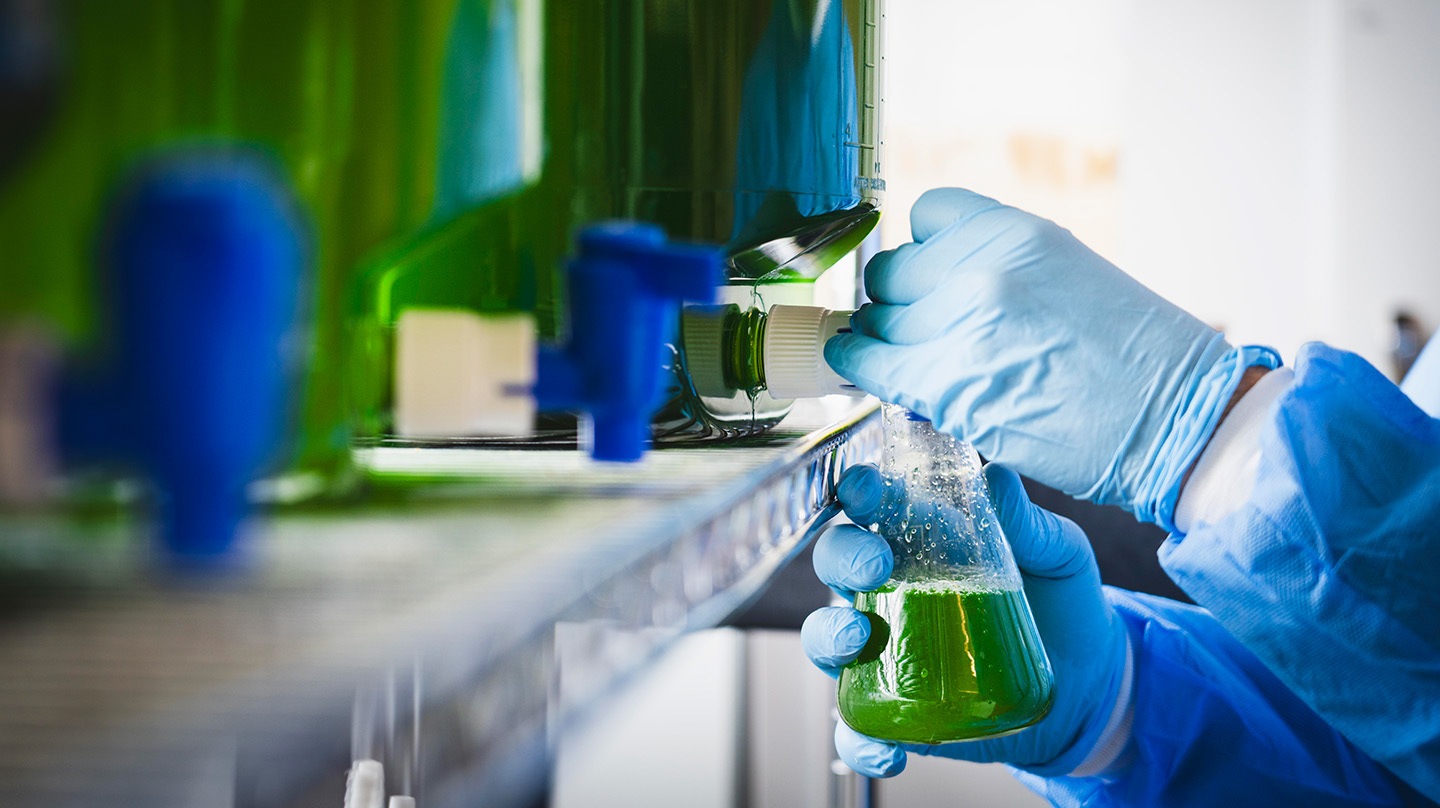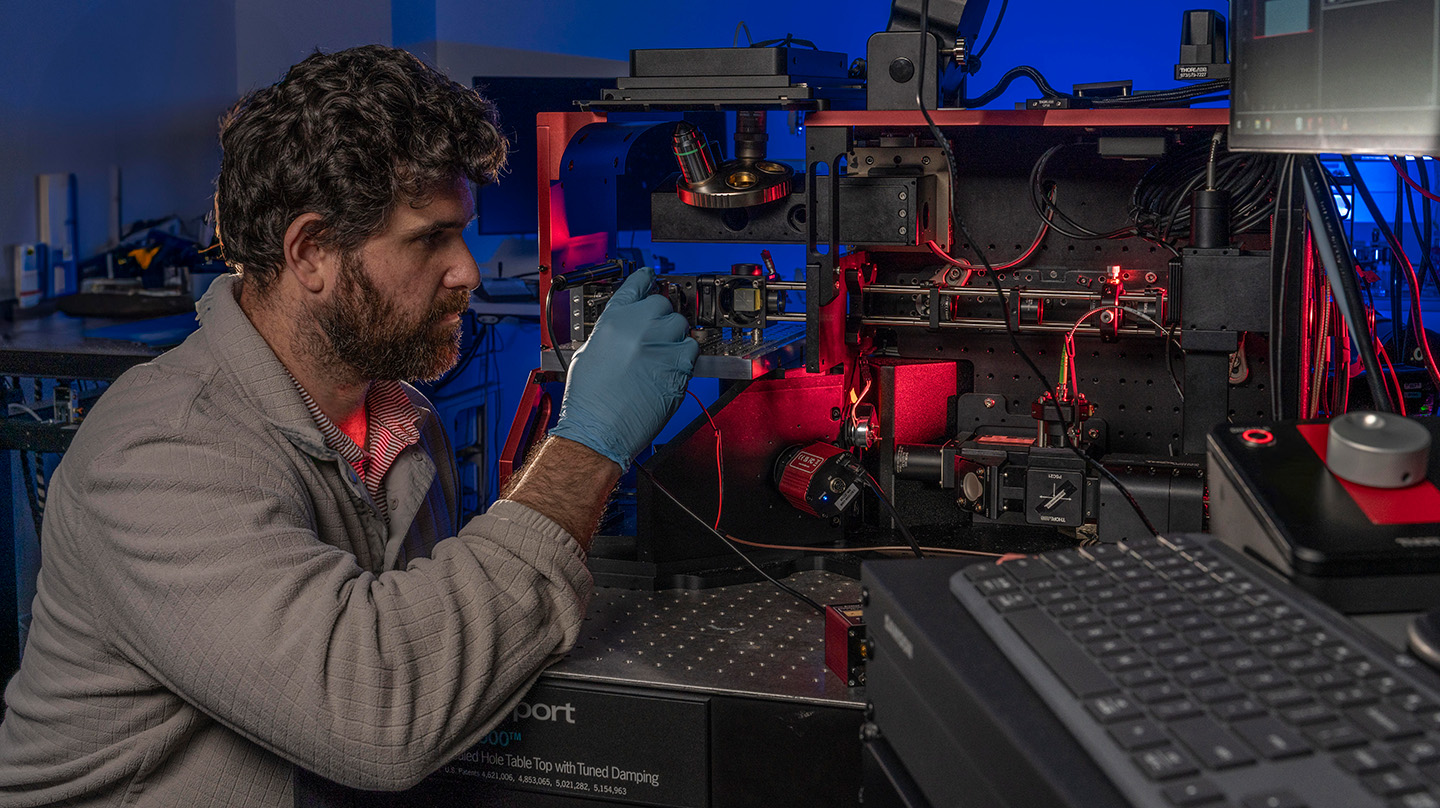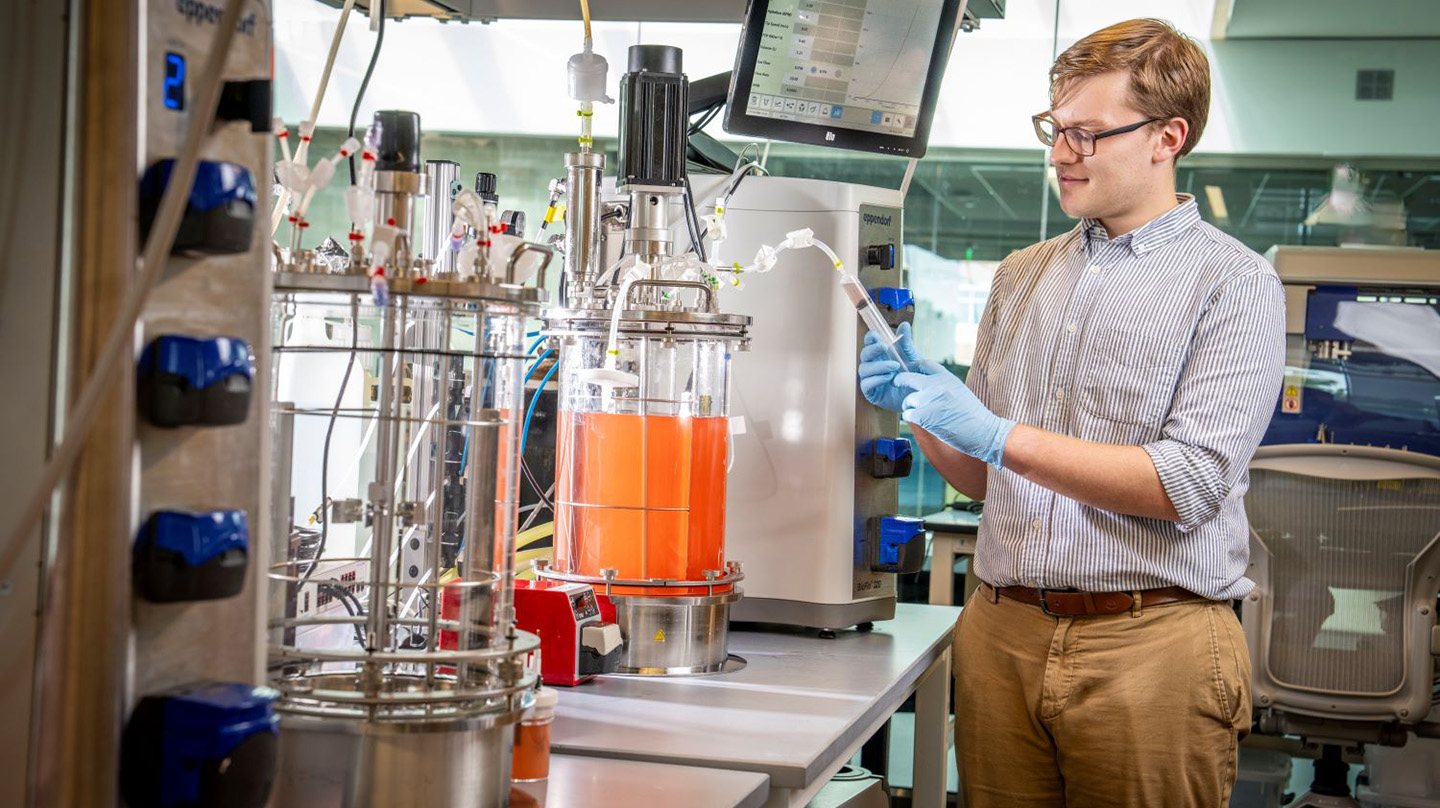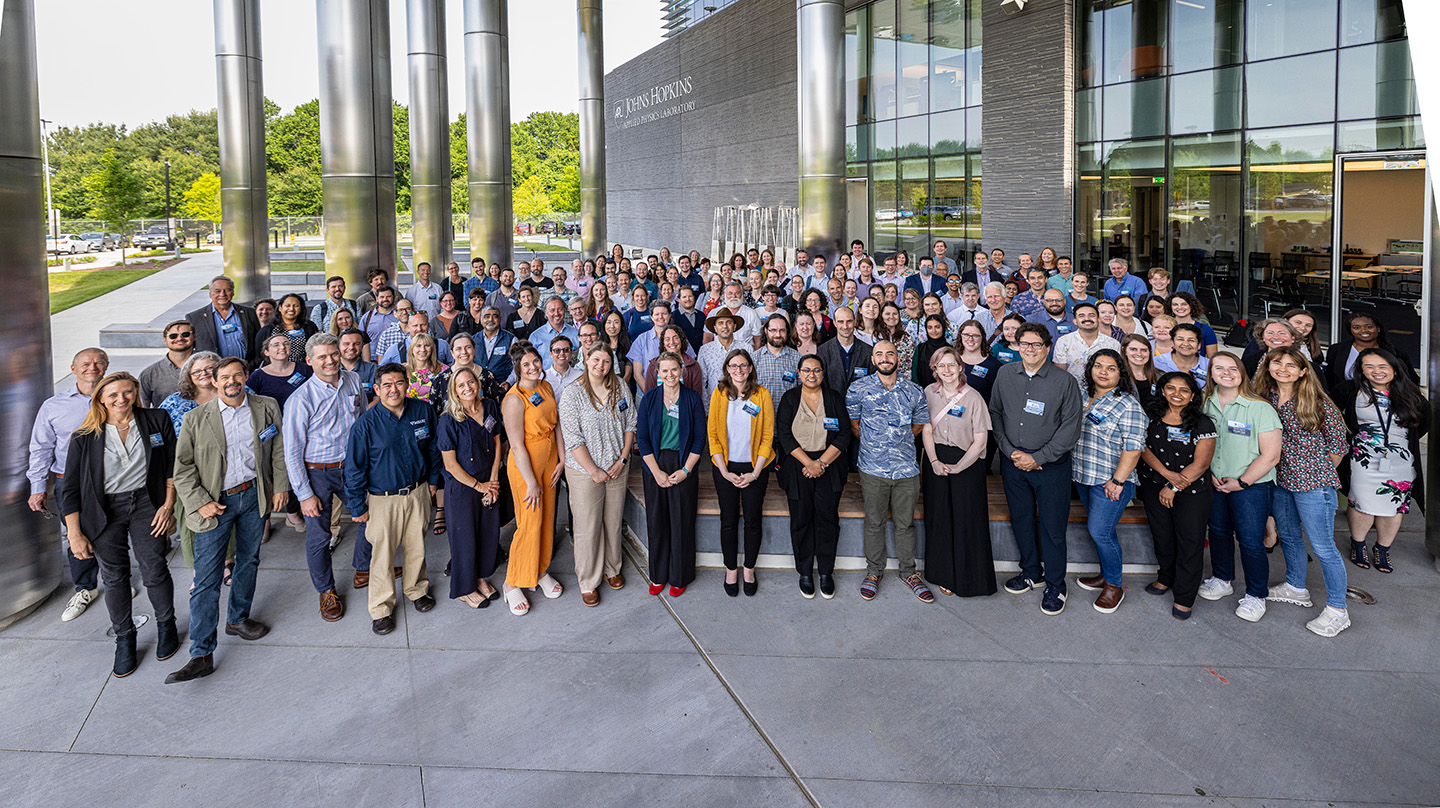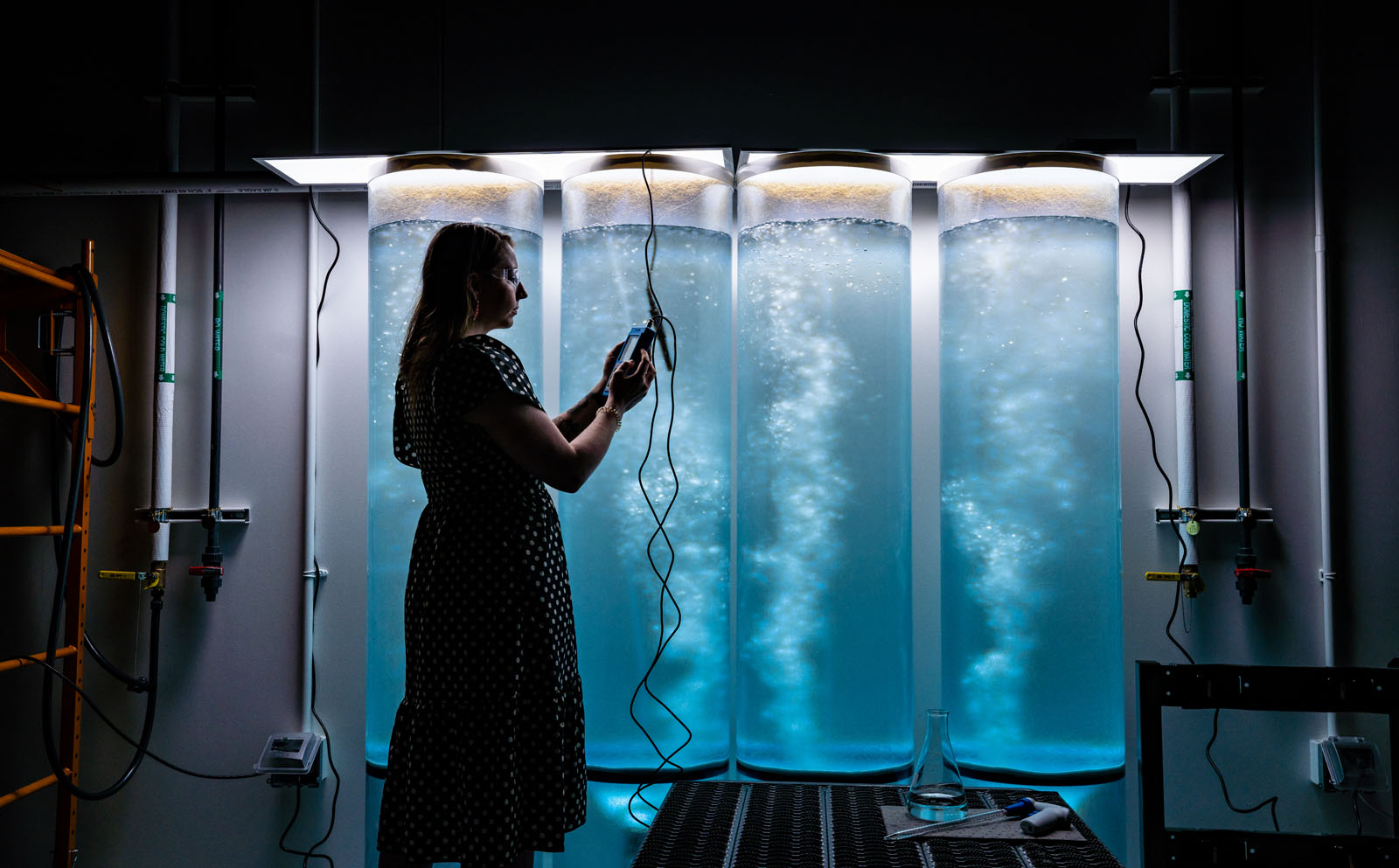
Research and Exploratory Development Mission Area
Biological and Chemical Sciences
About Biological and Chemical Sciences
Leveraging APL’s technical expertise, our team works to identify intersections of emerging military needs and domain opportunity in the fields of environmental security, superhuman endeavors, and operational enablers.
- Program Manager: Shanna Ratnesar-Shumate
- Assistant Program Managers: Katy Carneal and Brock Wester
Focus Areas
Environmental Security
Addressing national security challenges arising from dynamic environmental conditions
Superhuman Endeavors
Understanding and overcoming the current limits of individual health and performance
Operational Enablers
Translating biology and chemistry into enablers for military missions
Research Highlights

Into Vanishing Ice → May 21, 2024
More Research Highlights
In the News
- Florida’s Coral Reef Supports Fishing, Tourism and Beaches. Can Science Save It? (The Wall Street Journal, November 18, 2023)
- As the Arctic Warms, AI Forecasts Scope Out Shifting Sea Ice (Wired, November 3, 2021)
- Data Project Backed by Al Gore Aims for Real-Time Emissions Monitoring (World Economic Forum, September 16, 2021)
News from APL
- Johns Hopkins APL Developing a Suite of Solutions to Address Coastal Challenges (April 25, 2024)
- Johns Hopkins APL Honored Twice on Fast Company’s 2024 ‘Most Innovative Companies’ List (March 19, 2024)
- Johns Hopkins APL Tackles Military Sleep Deprivation With Innovative Smart Tool (February 14, 2024)
- Expanding eDNA Research and Physical Oceanography Into Critical Polar Regions (September 12, 2023)
- Johns Hopkins APL Restores Cold Sensation in Amputees’ Phantom Limbs (July 27, 2023)
- Creating Food From Thin Air: The Future of Nutrition (June 1, 2023)
- Inspired by Jellyfish, Johns Hopkins APL Researchers Float a Versatile Sensor Platform (April 27, 2023)
- Paintable Proteins Provide Environmentally Friendly Way to Protect Ship Hulls at Sea (April 13, 2023)
- Researchers Use Quantum Biology to Understand Human Response to Earth’s Magnetic Field (March 13, 2023)
- Coastal Defenders: Protecting the Nation’s Coasts with Natural Solutions (January 24, 2023)
- From Lab to Sea, Johns Hopkins APL Genomics Researchers Bring DNA Sequencing Tools Into the Field (September 1, 2022)
- With Basestack, Johns Hopkins APL Enables Crucial Genomics Work Around the World (September 30, 2021)
- Sensing the Planet: Johns Hopkins APL Working to Provide Data for Mitigating Climate Change (September 20, 2021)
- Johns Hopkins APL Diving into Marine Environments with New Lab (June 14, 2021)
- Johns Hopkins APL Researchers Plant Ideas for Building Better Biological Sensors (September 4, 2020)
- Johns Hopkins Researchers Retrace COVID-19 Introduction and Impact in D.C. Region (August 15, 2020)
- Saving the Planet, One Drop at a Time (January 30, 2020)
Featured Work

Mapping the Brain
APL led testing and evaluation efforts for IARPA’s MICrONs project, launched to create state-of-the-art machine learning capabilities by discovering how brain circuits process information.
Learn more about
Mapping the Brain

Neuroscience-Inspired Artificial Intelligence
Developing next-generation algorithms and computing substrates that leverage neurobiology to revolutionize intelligent systems
Learn more about
Neuroscience-Inspired Artificial Intelligence
